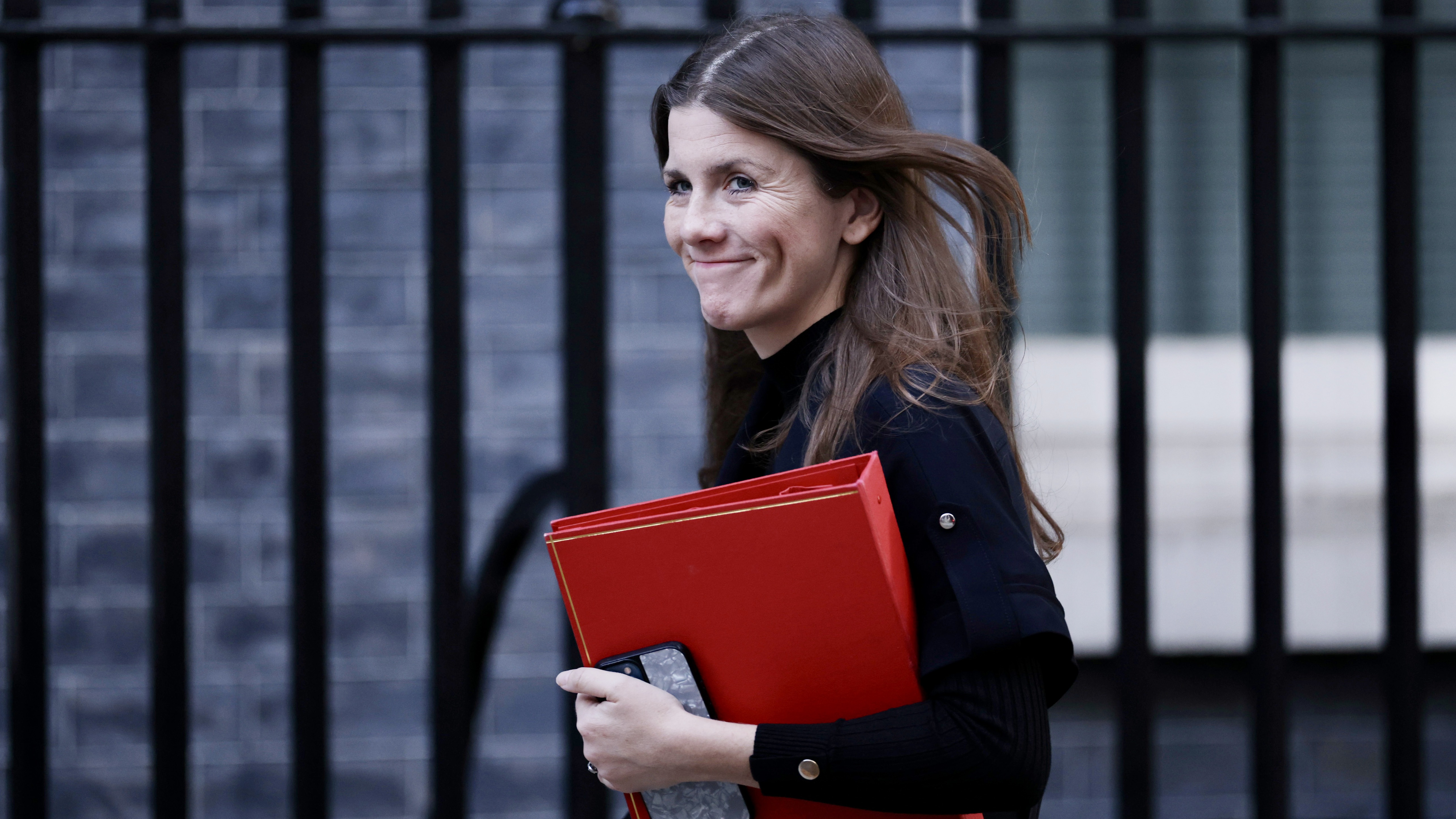Why exactly is Michelle Donelan in charge of UK tech strategy?
We need more STEM graduates in politics, with Donelan lacking the experience and expertise to shape the nation’s digital future

As I get older, my available spare time for dealing with idiots is getting shorter. Perhaps that’s because I’m aware I have considerably less remaining time on this planet than I have enjoyed so far.
Whatever the reason, I’ve noticed I’m becoming hyper-critical of the vacuous nonsense politicians spout on an almost daily basis. It doesn’t matter which hue they are, the low quality of the content is beyond worrying. Imagine my annoyance when I read this:
“Large language models (LLMs) like ChatGPT offer huge potential. In the future, they could help us live longer, healthier, wealthier lives. I want us to invest now to reap the benefits of this innovation; in healthcare, manufacturing, and public service delivery.”
Who spouted this drivel? None other than Michelle Donelan MP, secretary of state for Science Innovation and Technology (SIT).
Maybe LLMs will be a hugely beneficial revolution (although my experience suggests every technological upside comes with an equal and opposite downside). But LLMs only work because they have scraped the public internet at a global level. They have no intelligence, no wisdom, no curation of significance.
They’re excellent at taking global textual output that has been conveniently provided to them for free and can create some quite remarkably believable prose as a result.
Undoubtedly LLMs will be helpful to us, but the claim that “they could help us live longer, healthier, wealthier lives” is pure drivel.
Sign up today and you will receive a free copy of our Future Focus 2025 report - the leading guidance on AI, cybersecurity and other IT challenges as per 700+ senior executives
Or perhaps I’m wrong? After all, another of my valuable life lessons is I can, on some exceptionally rare occasions, be incorrect. Surely someone in such an exalted and respected position as secretary of state for SIT couldn’t have splurged this out without thinking it through?
What credentials does Michelle Donelan have?
Let’s examine the secretary of state’s credentials, as gleaned from Wikipedia.
“Donelan was educated at The County High School, Leftwich, before graduating from the University of York with a Bachelor of Arts degree in history and politics.
“Donelan's career outside politics was in marketing, including a time working on Marie Claire magazine and for World Wrestling Entertainment (WWE).
“She subsequently stood for parliament at the 2010 general election in the safe Labour seat of Wentworth and Dearne in South Yorkshire.”
I’ll be the first to recognize the work Michelle Donelan has done in Parliament for victims of domestic violence, education for children, and the Family Justice Board. All important and valuable, and surely to be applauded.
RELATED RESOURCE

I would also accept a BA in history and politics is useful, especially for a politician, but I struggle to see how it helps anyone in charge of UK science, innovation, or technology.
Nevertheless, for a few weeks under prime minister Liz Truss, she was secretary of state for Digital, Culture, Media, and Sport (DCMS), and if you squint at that in a certain light her background perhaps comes to her aid.
But now she is secretary of state for SIT, and I have to ask: “Why?” She has no background in science, innovation, or technology. She has no education in the field. She hasn’t worked in this space at all. And yet she is the head person in the government tasked with this critically important area.
UK politics lacks serious STEM influence
I started doing some digging into the numbers of people both within and entering the UK Civil Service with STEM qualifications and, according to a University of Cambridge study, it’s pitifully low. Around 10% of civil servants have STEM degrees, compared to 16% in the US and 30% in South Korea.
Maybe STEM graduates find they can have a more rewarding working life away from the government. We know for sure the UK doesn’t do enough to attract such brains into the civil service.
Yet, at the same time, the UK is a huge engine of science and engineering and one the government never tires of shouting about. Surely, STEM should be properly represented both in the Civil Service and among our political leaders?
One answer boils down to education. I was fortunate enough when I went to university in 1982 that degrees were funded by government grants. I wince at the sort of debt taken on by our university entrants each year.
Come the revolution, degrees in STEM subjects will be funded by the old-style grant method. We desperately need to skill up our workforce and, as the saying goes, desperate times call for desperate measures.
Will it happen in my lifetime? I hope so. And until then, I shall continue to point out that working at Marie Claire, whilst entirely honorable in itself, is no career path to be telling the UK tech sector about large language models.
-
 The modern workplace: Standardizing collaboration for the enterprise IT leader
The modern workplace: Standardizing collaboration for the enterprise IT leaderHow Barco ClickShare Hub is redefining the meeting room
-
 Interim CISA chief uploaded sensitive documents to a public version of ChatGPT
Interim CISA chief uploaded sensitive documents to a public version of ChatGPTNews The incident at CISA raises yet more concerns about the rise of ‘shadow AI’ and data protection risks
-
 UK’s ‘Tech Prosperity Deal' with US hits rocky ground
UK’s ‘Tech Prosperity Deal' with US hits rocky groundNews The US has reportedly threatened to pull out of the deal over the Digital Services Tax and broader economic disagreements
-
 UK government to fund regional tech programs up to £20m
UK government to fund regional tech programs up to £20mnews Local and regional partnerships invited to bid for support for established or developing projects
-
 ‘A major step forward’: Keir Starmer’s £187 million tech skills drive welcomed by UK industry
‘A major step forward’: Keir Starmer’s £187 million tech skills drive welcomed by UK industryNews The ‘TechFirst’ program aims to shore up the UK’s digital skills to meet future AI needs
-
 Government’s ‘Humphrey’ AI tool helps local authorities cut costs
Government’s ‘Humphrey’ AI tool helps local authorities cut costsNews The Minute tool, part of the Humphrey AI assistant, is being trialled at 25 councils
-
 The UK government hopes AI will supercharge public sector digital transformation – IT leaders aren’t so sure
The UK government hopes AI will supercharge public sector digital transformation – IT leaders aren’t so sureNews Research from SolarWinds shows public sector transformation is progressing at a snail's pace despite IT leaders pushing for rapid improvements.
-
 Starmer bets big on AI to unlock public sector savings
Starmer bets big on AI to unlock public sector savingsNews AI adoption could be a major boon for the UK and save taxpayers billions, according to prime minister Keir Starmer.
-
 UK government targets ‘startup’ mindset in AI funding overhaul
UK government targets ‘startup’ mindset in AI funding overhaulNews Public sector AI funding will be overhauled in the UK in a bid to simplify processes and push more projects into development.
-
 UK government signs up Anthropic to improve public services
UK government signs up Anthropic to improve public servicesNews The UK government has signed a memorandum of understanding with Anthropic to explore how the company's Claude AI assistant could be used to improve access to public services.